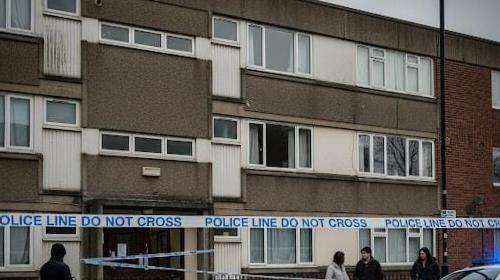A massive housing fraud racket has been exposed in East London, with two individuals arrested in connection with the fraudulent allocation of "several hundred" council homes at Barking and Dagenham Council. The investigation, led by the City of London Police in collaboration with the council, suggests that corrupt housing officers were at the heart of the operation, using their positions for "personal gain."
The scandal, which has been codenamed Operation Chandrila, came to light after months of intelligence gathering. Early on Thursday, September 4th, police raided five properties across Dagenham and Essex, leading to the arrests. Investigators believe that prospective tenants were targeted through social media advertisements and were then directed to pay "finders fees" and inflated rents to fraudsters in exchange for gaining access to affordable housing. Disturbingly, some of these payments were not even passed on to the council.
Evidence also suggests that a significant number of these fraudulently-let properties were then illegally sublet by associates of the corrupt officers, further exacerbating London's housing crisis. The London Borough of Barking and Dagenham (LBBD) and its housing company, BD Reside, have confirmed their full cooperation with the ongoing police investigation.
Wider Implications and South East London
While the initial focus of the arrests is on Barking and Dagenham, this case is part of a wider, alarming trend of tenancy fraud and corruption affecting multiple councils across London, including in the Southeast. Councils such as Greenwich, Southwark, and Lewisham have also been grappling with similar issues, albeit with different methods.
In a recent case in Southwark, a former council employee was sentenced for fraudulently obtaining a council tenancy, which they then sublet. Meanwhile, in Greenwich, the council has been actively working to recover properties that have been illegally sublet by tenants who have either moved away or are using the homes as a source of income. Lewisham Council has also highlighted its "zero-tolerance" policy on tenancy fraud, with several successful prosecutions and evictions in recent years.
The rise of online platforms and social media has made it easier for these fraudulent schemes to operate, as scammers can create a sense of legitimacy and target vulnerable individuals desperate for housing. The methods vary, from the outright sale of tenancy agreements to complex subletting arrangements that bypass official waiting lists. This systemic issue not only deprives genuinely needy families of homes but also drains public resources and undermines the integrity of the social housing system.
Council Leaders Speak Out
Barking and Dagenham Council Leader Dominic Twomey praised his council's fraud team for their "proactive work" that led to the arrests. "Huge thanks go to our colleagues at City of London Police for the work they’ve done so far working in collaboration with the council and BD Reside," he said. "We wait to see what happens as the investigation unfolds, but I would encourage anyone who feels they have information... to come forward."
The City of London Police has set up a dedicated portal and email address for anyone with information related to Operation Chandrila to come forward. The investigation is ongoing, and further details, including the identities of the two arrested individuals and the total number of homes affected, are expected to be released as the case progresses.
This scandal serves as a stark reminder of the immense pressures on London's social housing system and the urgent need for enhanced oversight, tougher penalties, and greater collaboration between local authorities and law enforcement to prevent such widespread corruption from taking root.
Residents across boroughs are reporting a similar, insidious housing scam. These fraudsters are allegedly targeting individuals who are not on the council's waiting list or priority list, promising access to new-build homes in exchange for "finder's fees" of £5,000 to £10,000. Council officials in Tower Hamlets have issued public warnings, advising residents that the council never requests money for housing applications and that any such offer is a clear sign of fraud. This highlights how scammers are exploiting the desperation for housing by promising instant access to highly sought-after properties, bypassing the official system entirely.








.svg)

_7.jpg)
_3.jpg)
_3.jpg)